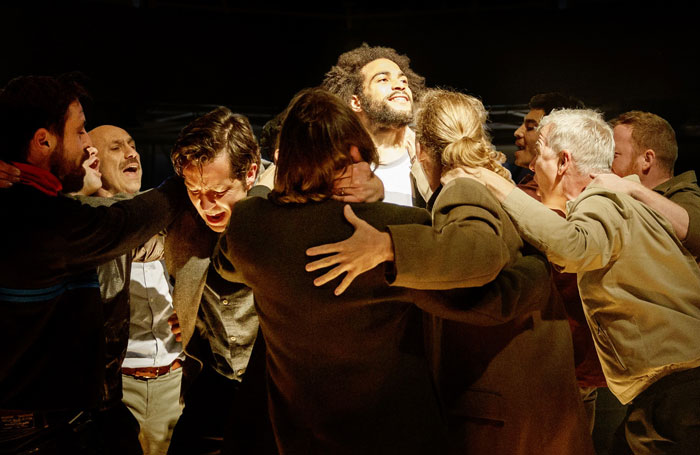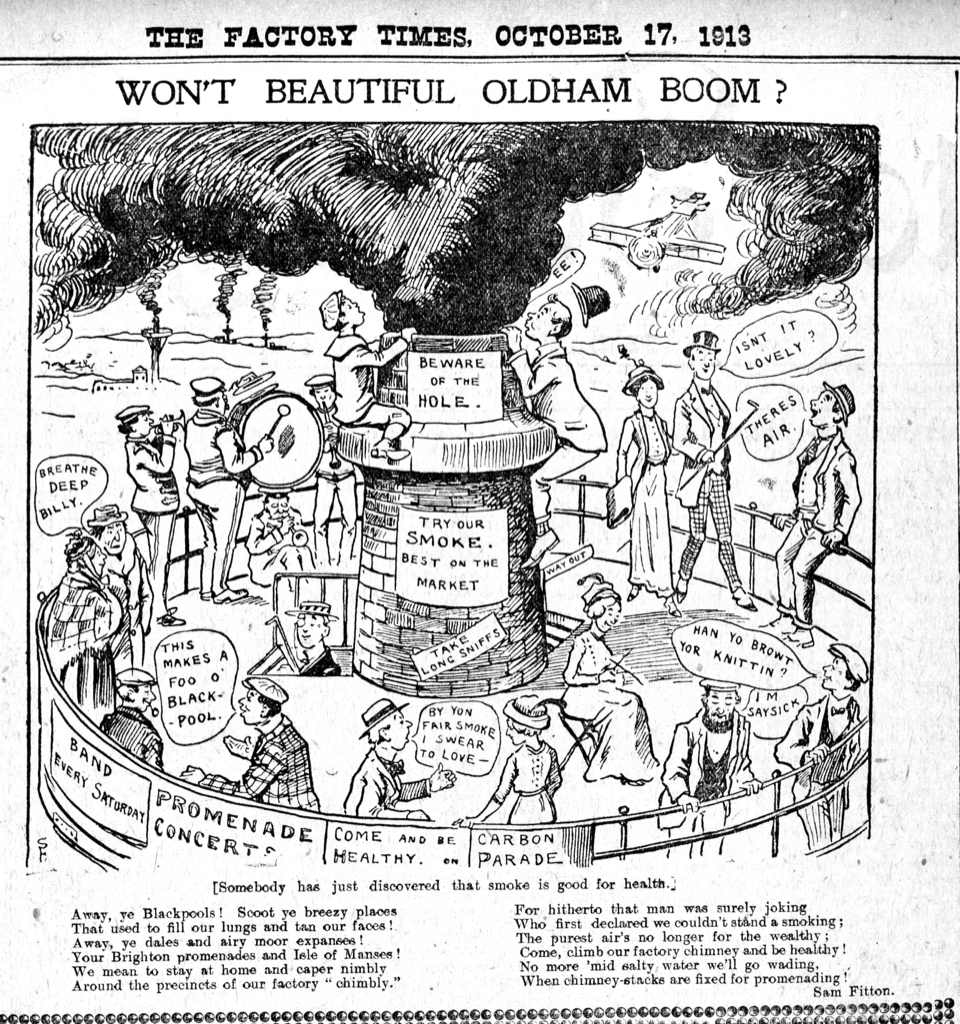In school, I was taught that the most convincing arguments address their own pitfalls before someone else raises them. The writers of Fatherland must have had a similar lesson somewhere between the drawing board and the curtain call.
Co-authors Scott Graham, Simon Stephens and Karl Hyde visited their hometowns (Corby, Stockport and Kidderminster respectively) hoping to unveil a new narrative about fatherhood. Instead, they unmasked their own self-indulgence, discovered their London-centric artistic angle and realised that the prospect of going home “made us prodigal sons until [we went] back and realise[d] no one [gave] a shit.”
 I really hope that this realisation as portrayed on stage held some semblance of truth – the image of a slightly gobby, unabashedly inquisitive Northerner calling out three London-based writers is too good not to be true. Either way, said gobby Northerner is an effective vehicle for steering the audience towards the writers’ realisation. The original proposal may have been different, but the play presented was a fantastically thought-provoking piece, the flaws of which were artfully – and self-consciously – written into the script.
I really hope that this realisation as portrayed on stage held some semblance of truth – the image of a slightly gobby, unabashedly inquisitive Northerner calling out three London-based writers is too good not to be true. Either way, said gobby Northerner is an effective vehicle for steering the audience towards the writers’ realisation. The original proposal may have been different, but the play presented was a fantastically thought-provoking piece, the flaws of which were artfully – and self-consciously – written into the script.
Controversial topics, such as the Islamophobic protestations of one aggressively protective father, act as signposts for the audience – a spot-the-difference generation game ensues. Here, the sharpest intake of breath came not from the stage, but the spectators. Remarks about Islam, immigrants and Brexit which were already pertinent when Fatherland was written, taunt even fresher, deeper wounds when it is performed. But the writers have not shied away from this. Their interviewees are quoted mostly verbatim, and judgement is left to the audience. Alcoholism, mental illness and violence are all dealt with in turn, weaving a complex web of emotion, interspersed with outbursts of belly-deep song. Raw humour punctuates moments of reflection: Eric Cantona is credited as a distant, metaphorical father figure in the wake of neglect. This heady mix of light and shade adds a distinctly Northern streak to this gritty piece, a running theme for this year’s Manchester International Festival.
The folk at the Royal Exchange have a penchant for clever staging. While the set for Fatherland is minimal, each corner of the theatre is utilised during the course of the play. Actors are not restricted to the centre stage. They appear in pairs, filling the aisles within arms reach, or en masse, banging on the theatre’s walls in an all-encompassing harmony that sends shivers down your spine. Occasionally, the action spills out through the open doors, as hyper-masculine football chants echo through the cavernous space. 
There is something almost sinister about the use of sound and light. It’s punchy and reminiscent of the last play that two of the three co-authors (Simon Stephens and Scott Graham) worked on together. That play was of course The Curious Incident of the Dog in the Night-Time. But Fatherland is subtler than The Curious Incident. Sparse but carefully selected metaphors are spattered throughout, hitting a nostalgic nerve. The images of a father’s coat, for example – the coat you snuggled inside when it was cold, or tugged at the hem of for attention. These are images most people can identify with on some level, they appeal to the everyman, or simply to every man. And therein lies the beauty of this play. It acknowledges the self-indulgence of its writers at the point of inception, but also takes us on their journey of realisation. By the end, it almost doesn’t matter what the intentions for this play were. The bigger picture is one of common experience, an experience of fatherhood often tinged with regret and forgiveness in equal measure.
Photos: Manuel Harlan
 Fatherland is part of Manchester International Festival 2017. It runs at the Royal Exchange Theatre until July 22, 2017. For more information, click here.
Fatherland is part of Manchester International Festival 2017. It runs at the Royal Exchange Theatre until July 22, 2017. For more information, click here.












